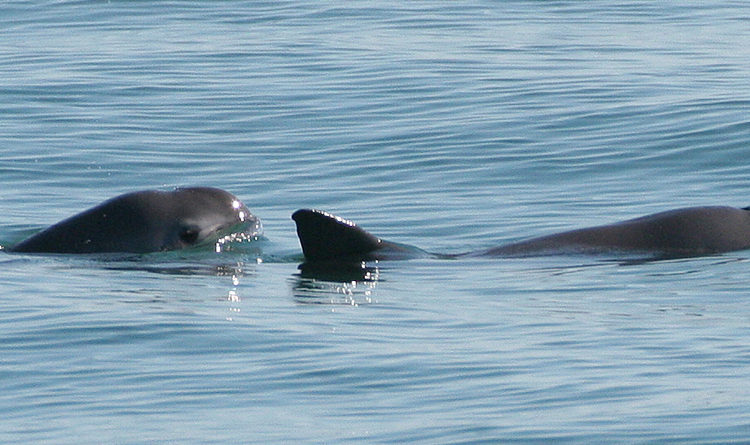Trump administration sued over illegal fishing allegations
WASHINGTON, D.C.—Two nonprofits have again sued the Trump administration, claiming the United States is not doing enough to slow the illegal fishing and trading of totoaba fish in Mexico’s Gulf of California. The lack of action in preventing the illegal fishing and trading of totoaba, numerous lawsuits on the matter (including the most recently filed one) allege, has resulted in the vaquita porpoise approaching extinction.
The Center of Biological Diversity and Animal Welfare Institute sued the Trump administration on June 11, stating the United States has “ignored conservationists’ 2014 legal petition seeking sanctions, including a ban on all fish and wildlife imports from Mexico.”
The petition was submitted under the Pelly Amendment, a U.S. law that would allow the Trump administration to prohibit seafood imports.
Mexican imports of shrimp and other seafood were already banned in the United States under a different law, earlier this year. Any action under the Pelly Amendment would expand those sanctions, according to a joint statement issued by the Center for Biological Diversity and Animal Welfare Institute.
“Likely only 10 vaquita remain on Earth,” the lawsuit, which was filed in a federal court in Washington, D.C., stated. “Vaquita face a single threat: they become entangled and drown in fishing gear, including in gear set illegally to catch totoaba, a giant, endangered fish. Totoaba are traded on the black market from Mexico to China, where the totoaba’s swim bladder is believed to have medicinal properties.”
Both the totoaba and vaquita are protected fish under the Convention on International Trade in Endangered Species of Fauna and Flora, or CITES. The take and trade of totoaba violates the effectiveness of CITES and contributes to the extinction of vaquita, according to the lawsuit.
“International, commercial trade [of totoaba and vaquita] is prohibited. Mexican law also prohibits totoaba fishing,” the lawsuit stated. “Yet for years, Mexico has failed to enforce these bans on totoaba fishing and trade, and as a result, the vaquita population has plummeted. If Mexico does not take serious, immediate, and concerted action to increase enforcement, the vaquita may be extinct by next year.”
The Pelly Amendment is a federal law authorizing a presidential administration to hold other countries responsible for contributing to the endangered or threatened status of any given species.
A passage within the June 11 lawsuit quoted the Pelly Amendment’s function and purpose: “[if] the Secretary of Interior … finds that nationals of a foreign country, directly or indirectly, are engaging in trade or taking which diminishes the effectiveness of any international program for endangered or threatened species, the secretary … shall certify such fact to the President.”
The lawsuit further explains: “Upon the secretary’s certification of a nation, the President is authorized to direct the Department of Treasury ‘to prohibit into the United States of any product from the offending country.’”
A formal petition filed in September 2014 requested the Secretary of Interior “certify Mexico for trade and taking of totoaba that ‘diminishes the effectiveness of CITES, pursuant to the … Pelly Amendment.
“Defendants have not made a final determination on the petition as of the date of this complaint’s filing,” the June 11 lawsuit stated. “Defendants’ delay in responding to the 2014 petition is unlawful, unreasonable and violates the [Administrative Procedure Act]. More than five years have passed since the petition’s filing, and during this time, Mexico’s totoaba taking, trade and violations of CITES has continues, as the vaquita’s population has declined precipitously.”
CITES, according to the lawsuit, is a “multilateral treaty governing trade in imperiled species;” it was signed in 1973 and went into effect in 1975.
The Pelly Amendment was enacted in 1971 and amended in 1978; the amendment is part of the Fishermen’s Protective Act and, according to the June 11 lawsuit, “provided the United States with leverage to prompt other nations’ compliance with international conservation agreements through trade restrictions.”
The Department of Interior – and its secretary, David Bernhardt – were the parties listed as defendants on the lawsuit; no other parties were listed.


